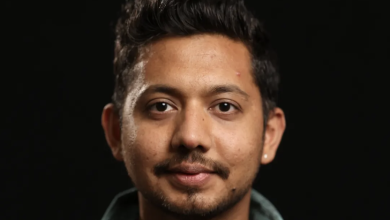
1. Every strong story begins with one bold step. But in your case, it is not just a start, but a transformation. What path did you take from the first text to your own agency, and what was the personal trigger for change?
I first became acquainted with copywriting back in 2009. At that time, it was more of a hobby – I wrote short texts for popular exchanges, researched the market, mastered the basics. But with each new project, I increasingly realized that I had potential that went beyond typical tasks and customer expectations. I faced limitations: in creativity, in income, and in the amount of responsibility that I could take on as a single specialist. This became the key trigger – the understanding that I wanted more: to manage processes, form a team, influence the result as a whole.
My husband and I decided to assemble a small team that united strong specialists with different competencies. Over time, the idea has transformed into a full-fledged copywriting agency that has been operating in the international market for over 8 years. Today, we create content for clients from Ukraine, Canada, the USA, Europe and other countries, maintaining a focus on quality, strategy and a deep understanding of business tasks.
2. Founding a copywriting agency is a change in thinking: from “I” to “we”, from expertise to business. At what point did you feel that you wanted to build a structure, and not just write texts, and what did your first step towards scaling look like?
A conscious transition from individual practice to building a structure occurred in 2016. At that time, I already clearly saw the growing demand for high-quality and scalable content. Together with my husband, we started working on an ambitious project, where we were faced with the task of not just writing texts, but building a full-fledged team capable of consistently closing large volumes of content without losing its quality. It was then that we realized: our strength is in the ability to unite experts, form effective work processes and provide businesses with not a point solution, but a systemic approach.
This experience became the basis for creating the agency. Since then, we have been developing as a structure specializing in the formation of sustainable content teams for large projects. Our key clients are online stores and international companies that value speed, scale and strategic depth of content. We do not just write texts – we help businesses speak the language of their audience, regardless of the region and scale of the tasks.
3. Modern copywriting has long gone beyond the scope of “writing a text” – it has become the semantic architecture of brands. What idea, philosophy or even mission do you put into the content that your agency creates?
In our agency, we perceive copywriting not as a text creation service, but as a tool for meaningful communication between a brand and its audience. Our main philosophy is to speak to the reader in his language, conveying the values and mission of the business through words that really resonate. We create content that does not simply convey information, but builds trust, supports the brand tone and helps achieve strategic goals.
Our agency’s motto is “texts you won’t be ashamed of” – reflects our internal quality bar. We do not limit ourselves to superficial presentation, but deeply immerse ourselves into the subject matter, understand the target audience and business tasks. As a result, we create expert, structured and SEO-optimized content that is equally highly valued by both readers and search engines.
4. AI is rapidly changing the rules of the game in the content market – from text generation to full automation of tasks. How did you initially perceive ChatGPT and other AI tools: as competition, assistants, or a challenge that changes everything?
The emergence of ChatGPT and other AI tools became, without a doubt, a turning point for the entire content industry. When generative artificial intelligence began to be widely discussed in early 2023, we saw a certain wave of interest from clients wanting to test new solutions and, possibly, reduce costs. This was an absolutely natural process: the market reacts quickly to innovations, especially if they promise automation.
However, after a few months, we began to notice a reverse movement. After practical experience working with AI content, many clients realized that machine text cannot replace live expertise, strategic thinking, and subtle work with nuances that distinguish truly effective copywriting. Artificial intelligence is good as an auxiliary tool, but not as a full-fledged replacement for professionals.
From the very beginning, we at the agency perceived AI not as a threat, but as a challenge and an opportunity – including in order to further highlight the value of the human approach. We even wrote a large analytical article in which we analyzed in detail why AI could not yet replace a live specialist. This material received a wide response in the professional community and helped us formulate our position: AI is a useful assistant, but it is the person who sets the meaning, tone and context. And while brands strive to be heard, the role of the copywriter will remain key.
5. Society is polarized: some say – “AI will replace us”, others – “it will free us for creativity”. Where, in your opinion, is the real line between what can be automated and what will forever remain with humans?
This line is thin and dynamic. Artificial intelligence today is a powerful tool, and I perceive it primarily as an assistant, not a competitor. It copes well with the tasks of generating ideas, selecting headlines, structuring information. But this is where its capabilities end, in my opinion, if we talk about creating content that requires depth, emotional intelligence and strategic thinking.
AI cannot interpret complex meanings in the context of a brand, is not capable of intuitive decisions and, most importantly, is not responsible for the accuracy of information. We have already seen precedents when generating texts with errors led to reputational risks – for example, a high-profile case with biographies of writers generated without fact-checking caused a wide public resonance. Moreover, research shows that indicating the AI origin of content reduces trust and conversion: the audience is intuitively drawn to an authentic, live voice.
I consider AI as a tool that enhances the expert, but does not replace him. My approach is collaboration: first, generating ideas or a basic draft using AI, and then deep processing, verification, and finalizing the structure and meanings by a specialist. This is how a truly high-quality text is born.
By the way, an interesting material was published by OpenAI in the fall of 2024, where writers, journalists, and comedians shared how AI helps them in their creativity – as a source of inspiration, but not as the final author. This once again confirms: the future is in the symbiosis of technology and human intelligence, where everyone remains in their place.
6. While some are fighting AI, others are learning to cooperate with it. In what tasks have you already implemented AI in your processes? What does it really help do better, and where, on the contrary, does it hinder quality?
We are gradually integrating AI tools, especially ChatGPT, into our work – as auxiliary, but not final solutions. We see the role of AI in our work process as a tool for generating ideas, drawing up preliminary plans for articles, finding structural solutions for longreads, and also as a source of prompt information collection. This partially saves time at the preparatory stage, especially when it is necessary to evaluate possible angles for revealing a topic or outline the basic skeleton of the text.
However, every fact, every figure obtained with the help of AI requires mandatory fact-checking. We are well aware that artificial intelligence can “invent” data or distort the context. Therefore, you need to be extremely careful with AI tools. This is especially important in SEO content, where maintaining uniqueness, reliability and compliance with audience requests is critical.
The weak point of AI is the illusion of accessibility and simplicity. Many companies, trying to save money, start generating texts en masse without a strategy, editing, or understanding their target audience. As a result, the content loses credibility, does not convert, and in some cases even harms the brand’s reputation. We often encounter the fact that generated materials are not unique, are not adapted to the brand, and do not pass moderation in search engines.
That is why our agency has been offering the service of humanization and uniqueness of AI texts for the second year. We help businesses correctly integrate AI into content processes: we check, edit, bring to the required quality, and adapt to Google requirements. This allows companies to maintain a balance between efficiency and quality without losing face in front of their audience.
7. Looking ahead: it seems that AI is unstoppable. How do you see the future of expert copywriting in 3-5 years? Will it be a symbiosis of man and machine or a complete revision of the very essence of copywriting?
It is difficult to predict the future 3-5 years in advance, especially in the context of such a high rate of technological change. What recently seemed like science fiction has become part of our reality today. However, despite the rapid development of AI, I am sure that expert copywriting will retain its value and will develop in the format of a symbiosis of man and technology, rather than a complete displacement.
We are already seeing polarization in the market: some companies are actively experimenting with AI content generation, while others fundamentally require texts created exclusively by humans. Moreover, many clients indicate specific parameters in technical specifications confirming the “human origin“ of the text. This suggests that the value of a manual, expert approach is recognized and preserved.
At the same time, AI cannot be ignored either. Those specialists who learn to use it competently in their work processes – for generating ideas, preliminary structure, basic editing – will have a significant advantage. As I noted in my comments for Forbes: “Freelancers who use AI to work will be several steps ahead of their colleagues in the market.“
Thus, the future, in my opinion, belongs to a hybrid model: the machine speeds up the routine, and the person sets the tone, depth and strategic meaning. The ability to combine technology and expertise will become a key skill for the new generation of copywriters.




